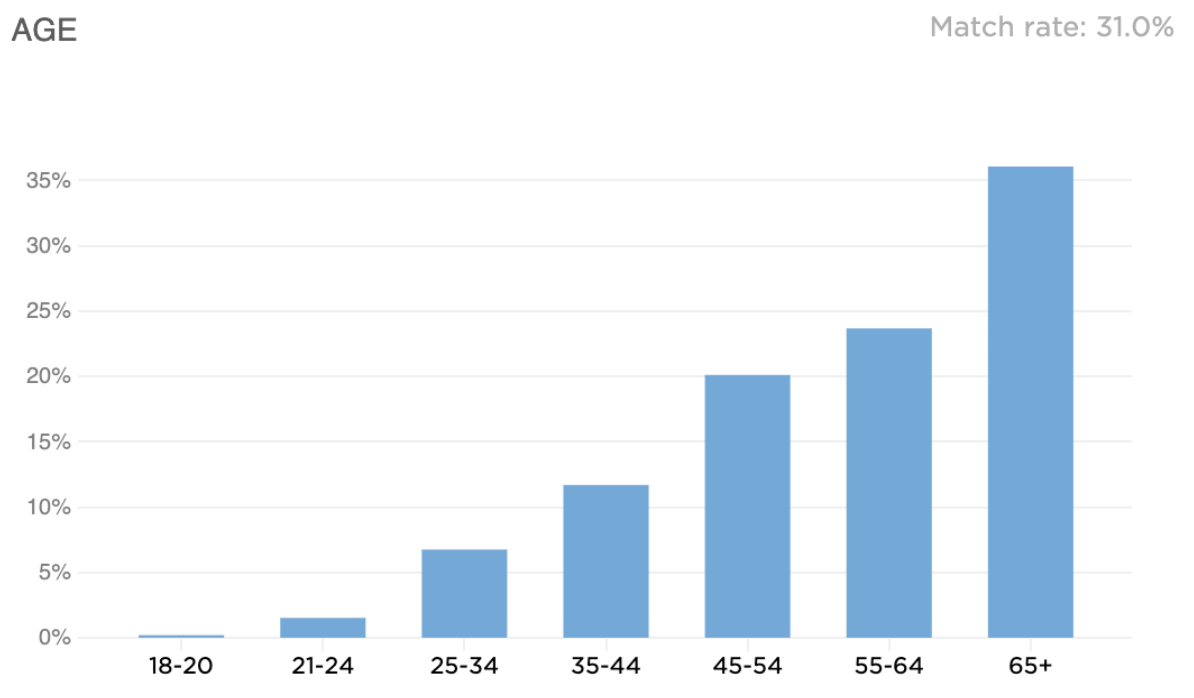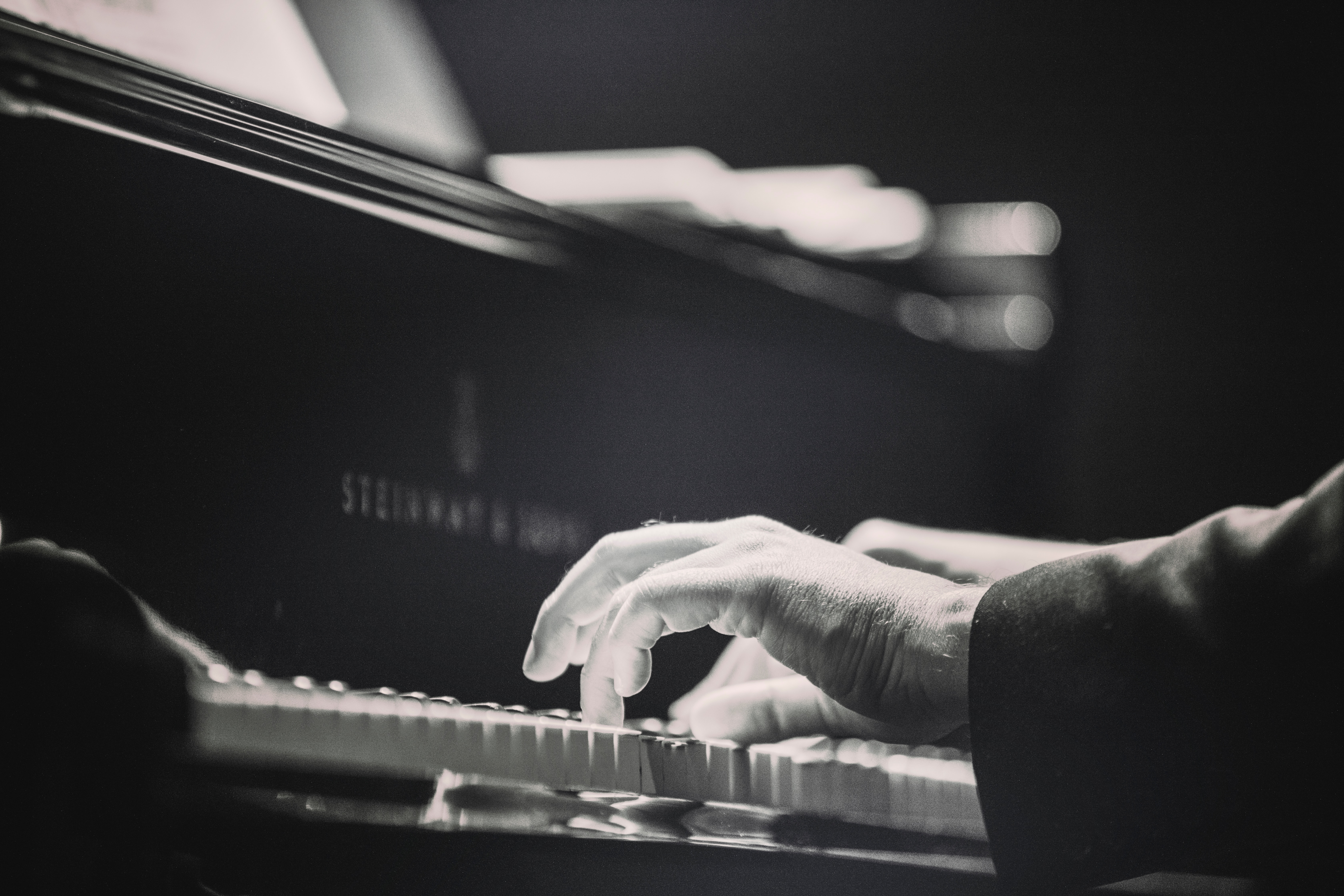The results were surprising. Very surprising. I’m an online piano teacher, and I had just run my audience of 200,000 online piano learners through an analysis program that determined the average age of my audience.
Now, I’m 28 years old. And you would think my audience would be around the same age. After all, old people are going to have a really tough time learning something new like piano, right? Especially when they’d be learning online, right??
Well, turns out that’s wrong. And not only is it wrong, but studies show piano may have the most benefits to learners over the age of 65. Here’s the results of the analysis:

A whoppin’ 36% were over the age of 65! And 79% were over the age of 45! Turns out there’s a huge movement of adult learners who are learning piano to “stay young”. And the research supports they’re goals. And even if you’re young, the brain benefits still apply to you, so why not start now? Here are the top 5 biggest benefits:
1. Improves Memory
Research shows in as little as 6 months of piano practice, your memory can be significantly improved. When you play piano, you have to play both hands at the same time. While to the casual observer, this seems like multitasking, it’s really not: It’s memorization.
In order to focus on both hands at the same time, a piano player “memorizes” one of the hands so that it’s on autopilot, that way they can focus on the other hand. Repeating this process for song after song builds up your memory skills and can help stave off alzheimer’s and dementia.
2. Sharpens Fine Motor Skills
Playing piano is like a workout for your fingers. Over and over you’re using your hand-eye coordination to play the correct notes at the correct time. Just like working out, this improves the strength and health of the muscles, tendons, and joints in your hand, wrist, and fingers. And when you do this consistently, it can help decrease the effects of arthritis.
3. Decreases Stress
Piano can be a great outlet for dealing with stress or anxiety. It forces you to concentrate on the complexity of playing a bunch of notes at the same time. Good luck focusing on other stressful areas of life while you’re practicing piano!
And not only that, but once you build up a repertoire of songs, you can go back and play old songs and “get lost in the music”. This can be an excellent tool to get your mind out of whatever’s bothering you at the moment.
4. Boosts Your Ability to Learn
Learning piano is the perfect tool to learning just about anything. When you’re learning a song on piano, it forces you to break down the song into small parts. And then break those parts into even smaller parts. Then you learn each small part, put them together, and voila! You’ve learned the song!
But even better, as you learn more and more songs this way, you start to figure out this process of breaking down big goals into smaller and smaller, more manageable ones. And you realize you can apply this to learning any skill in life.
5. Increase in Neural Connections
Neuroplasticity is your brain’s ability to create new connections, and reorganize old connections into new ways. In other words, it allows you to learn new skills and habits over time.
Learning piano has been shown to increase Neuroplasticity, even in older adults. So it turns out the old saying “you can’t teach an old dog new tricks” isn’t true after all. And learning piano will help you learn new tricks even faster.
The Extra Benefit
Now, all this “sciencey stuff” is good and all. But let’s be honest, playing piano is just plain fun. Being able to take your favorite songs from the radio, sit down at the piano and play them adds a lot of enjoyment to your life.
And, although many people will tell you “it’s too late” to learn piano after a certain age, or that “you missed your window”, this is simply not true. The science doesn’t support it.
And best of all, with today’s technology, you can learn it all online, from the comfort of your computer. And you can start reaping the rewards of all these positive benefits.
Zach Evans is an online piano teacher specializing in teaching adult students. Over 200,000 people have taken his free online piano course, and you can too! Sign up for free on his website.


